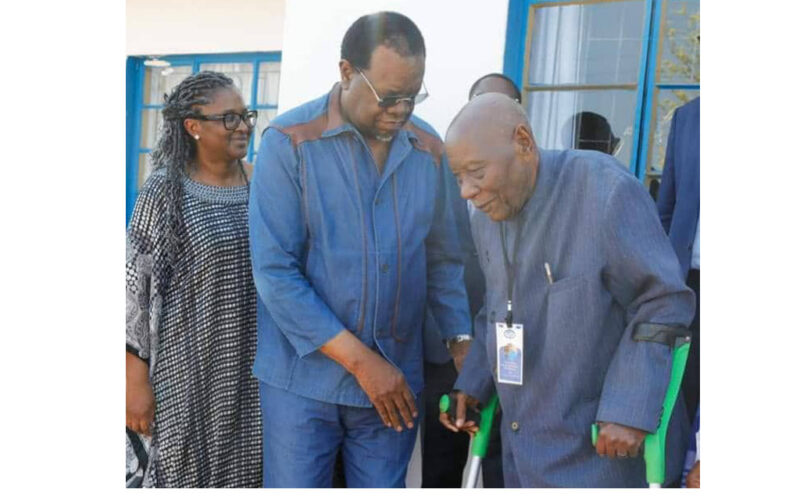HERTTA-MARIA AMUTENJA
PRESIDENT Hage Geingob has praised the late Archbishop Petrus Katikisa Daniel Uariune Tjijombo as a man with a kind-hearted and tender spirit, but also a man with a firm disposition and courage that enabled him to play an important role during the liberation war.
Tjijombo died on July 15 in Windhoek at the age of 87 following a protracted illness and was buried last Saturday at Otjiuaneho village in Otjinene constituency in Omaheke region.
“As we reflect on the life of late Archbishop Tjijombo with reverence, fondness, and admiration, we recognise that, behind the sanctity of the cloth, he was not only a man of God but a freedom fighter who used the power of gospel to inspire revolution and resistance during the most tumultuous period of our history. He ran a solid race, maintained his faith, and fought a good fight,” he said.
Geingob said that his first contact with Tjijombo occurred in Gobabis in 1989 after he, (Geingob), had just returned from exile and was on his way to town to address a Swapo rally.
“That was when I was greeted by the “harmonic and rhythmic” singing of Tjijombo’s church choir, and we have been friends ever since. I have always believed in the saying, Give the person a flower to smell while the person is still alive to smell it. That was my relationship with this magnificent man of God. I made every effort to visit him and share memorable moments in his company.
“At this time, due to the operation that I had, I am unable to attend Archbishop Tjijombo’s funeral at his house, as well as this weekend’s funeral service. However, I am with you all in spirit and thought as we bid our beloved elder farewell and give him a deserving valediction,” Geingob said.
He said that the late Archbishop Tjijombo’s political actions placed his life and the lives of his immediate family members in considerable risk, as the South African Apartheid state intensified efforts to impede his efforts to promote Swapo within the Otjinene constituency and beyond.
“Following Chief Clemens Mutuurunge Kapuuo’s assassination in 1978, the late Archbishop found himself accused of involvement in the conspiracy, and his life became difficult. Due to his involvement with Swapo, he was shunned by certain members of the community and was even prevented from attending meetings. Even members of his church congregation were targeted by enemy informants and Apartheid security agents,” Geingob added.
He added that in 1980, the late Tjijombo was confronted with a hostile atmosphere and, fearing for his life, sought sanctuary at the home of his nephew, Mitiri Gerson Ngaundue Tjondu, in Orumana.
“During the same year, Tjijombo was dispatched to Lusaka by the late, Marco Hausiku to collect finances for party operations in Namibia. This got him in more difficulty with security forces, leading in a harsh beating by Apartheid police and soldiers, leaving him with physical disabilities that he bore till his death,” the President said.
“Today, he sits atop the mountain of victory, alongside those brave men and women whose blood waters our freedom,” Geingob added.



Leave a Reply